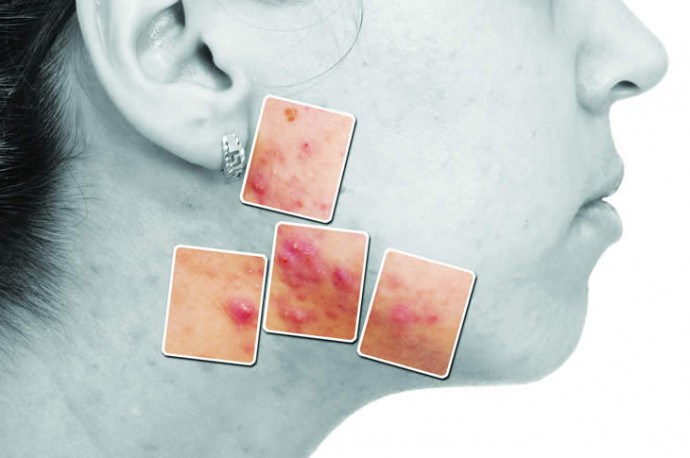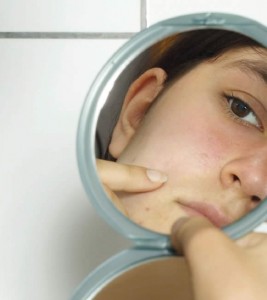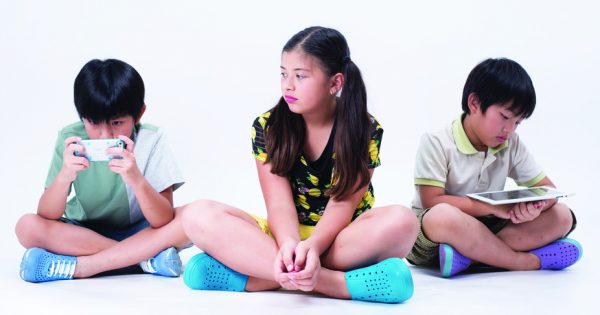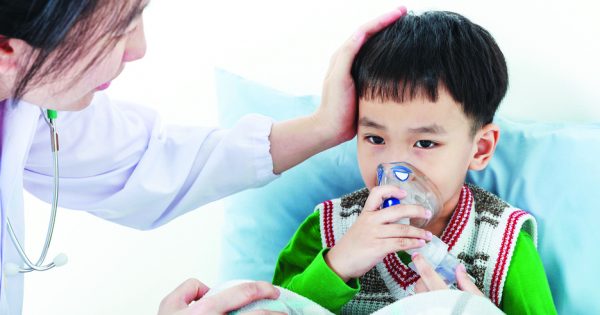Puberty and pimples go hand in hand and 9 out of 10 teenagers (regardless of ethnicity) will probably experience acne during their teen years. Acne is defined as a skin condition that exhibits different types of bumps, which could be blackheads, whiteheads, pimples, or cysts.
Acne Triggers
The leading cause of teen acne is hormones. During puberty your teen’s body starts producing hormones known as androgens that contribute to acne, which usually shows up on the face, neck, shoulders, upper back, and chest.
When there is an excess of these hormones, the sebaceous glands (oil glands) of her skin become overactive. It then combines with dead skin cells and clumps together into a sticky substance that plugs the pores of her skin, resulting in acne. This traps oil and bacteria which may lead to inflammation. When this happens, white blood cells are deposited at the affected areas of her skin, causing a whitehead.
In addition to fluctuating hormones, other triggers of teenage acne include improper skin care, food allergies, nutritional imbalances, and also heredity. The good news is, for most people, acne goes away almost completely by the time they are out of their teens.
Acne Myths
There are a few myths out there about things that cause acne — like the one about eating chocolate causing acne. Some people do find that their breakouts get more severe when they eat too much of a certain food, though. If you’re one of them, it’s worth trying to cut back on that food to see what happens.
Other myths talk about what helps make acne better. Acne isn’t really helped by the sun. Although a tan can temporarily make acne look less severe, it won’t help it go away permanently — and some people find that the oils their skin produces after being in the sun make their pimples worse.
Prevention & Acne Care
Your teen can take control and improve the appearance of her skin. These tips will help to get rid of existing acne as it prevents future breakouts:
- Don’t Pick! If your child looks in the mirror and sees a pimple, she should not touch it, squeeze it, or pick at it. This might be hard to do — it can be pretty tempting to try to get rid of a pimple. But when she plays around with her acne, it may cause even more inflammation. It may even result in tiny, permanent scars on her face.
- Ensure proper skin care regiment. This helps to prevent breakouts and maintain healthy skin. Do not use harsh acne products that can badly dehydrate and irritate her skin, as this can trigger the glands to produce even more oil and result in more pimples.
- Don’t go to sleep with makeup. Make sure she develops a habit of removing any makeup she may have on before bedtime. This prevents clogged pores and future breakouts.
- Use the right makeup. Ideally, teens should avoid the use of makeup but if she uses a concealer to cover blemishes, make sure that it has ingredients such as Salicylic Acid which will help to disinfect while concealing.
- Washing her pillowcases often. This helps to prevent acne by ensuring that no bacteria and germs accumulate on it.
- Be gentle. After she washes her face, gently pat dry with a clean towel and do not rub dry. Rubbing the skin will only irritate her skin, leading to further breakouts.
- Shower! After any sports activity, perspiration and oil can settle on the surface of her skin leading to trapped dirt and bacteria in her pores.
- Keep hair clean and away from the face. Long hair or bangs around the face and wearing hats or bandanas too frequently can also allow teen acne to spread.
Defeating Acne Attacks
There may be times when even proper hygiene fails to stop acne. Even washing properly or using oil-free lotions and makeup is no guarantee against it. Teenage girls may find an outbreak of acne a few days before their period. This is called premenstrual acne which is caused by hormonal changes in the body and affects about 7 out of 10 women.
If your teen faces this problem, reassure her and let her know that she’s not the only one of her age who is dealing with it. Encourage her to talk to you or her other friends about it. Sometimes, just talking about it helps to alleviate some of the stress.
Alternatively, you may want to get her to consult your paediatrician or family doctor as they may be able to treat the acne with prescription medicines. Depending on the person’s acne, this might mean using prescription creams to prevent pimples, antibiotics that kill the pimple-causing bacteria, or even having minor surgery.
It is important to reassure your teen that acne is not the end of the world. It is a fairly common problem, and while severity and type varies greatly, there are more and better treatment solutions for acne than there ever have been. Rather than letting your teen suffer in silence, encourage her to seek these support options and treatment possibilities so that she can alleviate any suffering and put it behind her.









Comments